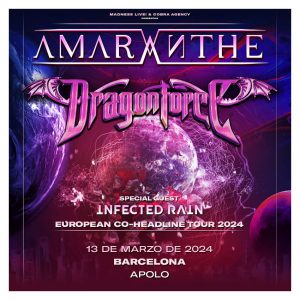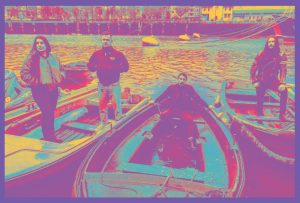ELECTRIC WIZARD (Eng.)
1) Hello, and first of all, thanks for taking the time. How is everything going right now with ELECTRIC WIZARD? What are you currently up to?
What am I currently up to? Doing interviews for the new album…
2) You have just released your newest album, «Time to Die», which sees the light 4 years after unleashing your previous opus. A relatively long time gap. Considering this is your 8th full length album, you’ve stayed true to what you believe in – by this, I mean you’ve remained loyal to what the Wizard is. Could you say it’s getting harder to come up with new quality albums without repeating yourselves?
Umm, well that’s up to the public to decide, I think. It has taken us four years to do it, and I suppose it takes longer and longer to come up with original ideas, 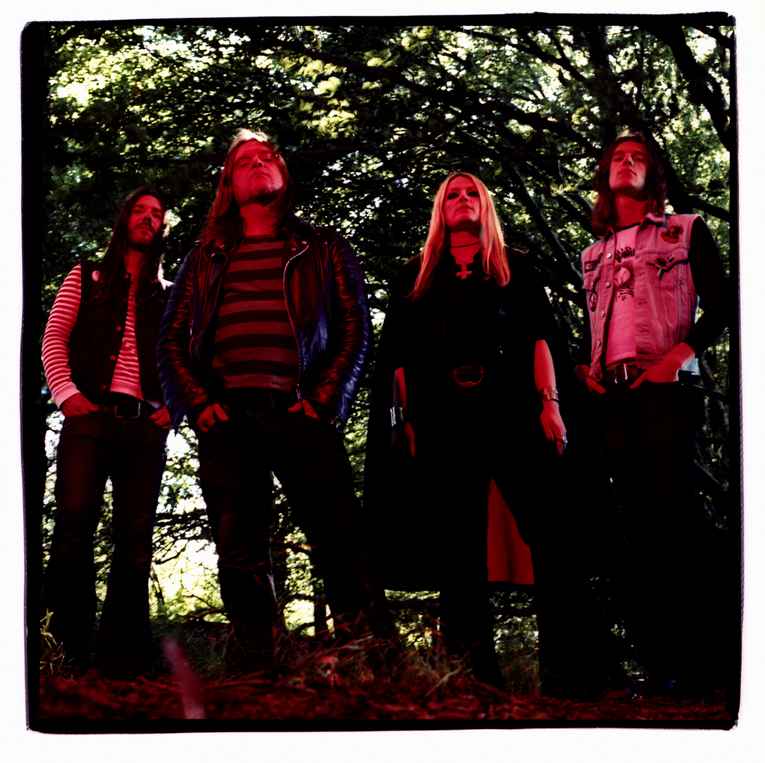 but we try the best that we can. Some people might accuse us of repeating ourselves, but to be honest, we’ve got a style and that does have parameters, so there is going to be an element that holds true – I mean, would you want Sabbath to completely change their whole sound, or any other band you really like, for that matter. But who knows?! We’ll know if the album sells or not, I guess…
but we try the best that we can. Some people might accuse us of repeating ourselves, but to be honest, we’ve got a style and that does have parameters, so there is going to be an element that holds true – I mean, would you want Sabbath to completely change their whole sound, or any other band you really like, for that matter. But who knows?! We’ll know if the album sells or not, I guess…
3) We could say this new «Time to Die» revolves around death, it’s like a meditation of death. Would you mind elaborating a little bit on the whole idea and how have you covered it on the album?
That’s a hard one, I don’t even know where to start, haha. Well, the album IS a meditation on death, although that wasn’t the original plan, it just turned out that way. At one point, it felt like we were being killed, then it felt like we were trying to kill everyone, so yea, death sort of became a common theme. Listen to the album, and you’ll see that it is trying to question the whole subject…
4) In fact, the sound is absolute sonic destruction, really primitive. Do you think the music depicts in some way the death «theme»?
Yea, every time we write a riff we try to be kind of apocalyptic. When we started the band, the music was actually quite antagonistic and meant to be a finger up to the mainstream and to pop music in general; so because of that background, we try to almost attack our audience and it’s very masochistic… hopefully, they’ll enjoy it!
5) Anyway, I think to a certain extent «Time to Die» follows the pattern of your previous «Black Masses» in the sense that atmosphere seems to play a bigger role, with more psychedelia and more sound effects, especially on vocals. Did you have a clear image in your mind of how you wanted «Time to Die» to sound like?
Well, personally I think doom metal is all about atmosphere – that’s probably what sets it apart from most other types of metal. I mean, when we set out to write a riff, it has to have a doomy atmosphere, it has to sound like cemeteries and churchyards… although I guess they’re the same thing, really, haha. You know, black mountains, oceans, those kind of things, an epic sort of sound… atmosphere goes into everything we record. With this one, we tried to create a very gloomy, depressing, morbid atmosphere more than anything else, whereas the last two have been more hedonistic, I think, a bit more celebratory of the dark side. ‘Time to Die’ is essentially a morbid reflection on death, as I said earlier…
6) Vocals feel like another instrument, blending perfectly with the atmosphere, they seem to be part of a «whole thing», so to speak. 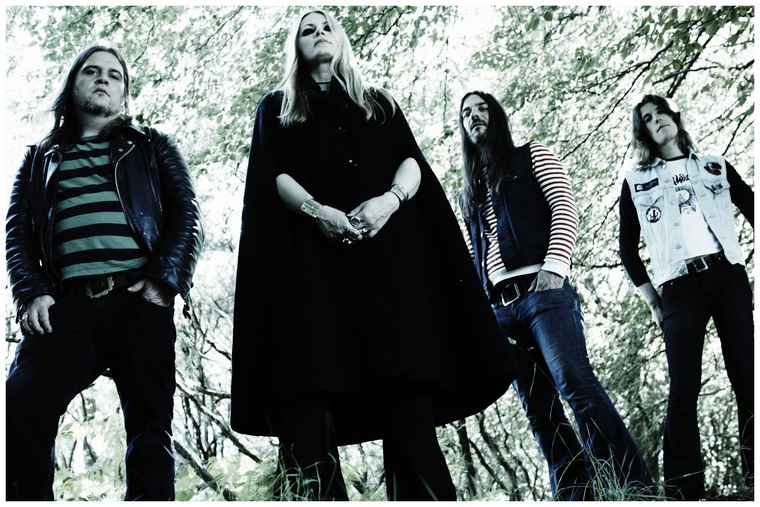 Do you approach your vocals in a certain way or do you just let go?
Do you approach your vocals in a certain way or do you just let go?
I try to bury them because I’d rather not listen to me. I’m not a big fan of my own singing.
7) But it’s also really angry, dark and primitive, back to your roots, I could say, with elements of albums such as «Come My Fanatics…». When you are working on new material, do you ever look back to any of your earlier releases?
Well, obviously, as a musician or an artist, you have a body of work, and that’s always going to be there and you’ll always be judged against it. You’re only as good as the last thing you record, really, you can’t get away from that. But, yea, we do look back to our earlier stuff…
8) I also found a lot of ’70s Heavy Metal and Hard Rock, almost back to the Doom Metal roots. In general, there’s a really traditional sound/vibe. Due to this, I wonder if this time was the song-writing process any different?
The song-writing process wasn’t any different really, no. And, you know, we’ve always listened to bands of the kind you mention; we probably looked back to the first album on this one, when we were really into Blue Cheer, Cream, The Yardbirds, really blues-based stuff, so yea, that was probably the only slight difference on the song-writing side… with blues-based stuff, you tend to feel it out a lot more….
9) It also took my attention the fact the Hammond and synths are more present here, as we can clearly hear on tracks such as «Saturn Dethroned», a quite standout tune, I could say. What’s the story behind this song? How was it born?
Well, I don’t think the album features more keyboards than before, we just have better production values this time, we’ve allowed for those elements to breath a bit more and come out in the sound. But we’ve certainly had all this stuff before – we’ve had instrumentals and we’ve used analogue synths and analogue keyboards. We’ve also used piano on a few albums. But, yea, I think we’ve just brought certain elements more to the fore this time with a better sound and better overall production… ‘Saturn Dethroned’ was the result of a couple of jams, a couple of organ lines that Mark (Greening) had laid down, a drum beat, and then I added a melody with the bass guitar. It was one of those songs that you actually write in the studio, there is always a couple like that, that you make up as you go along, rather than having everything totally prepared in advance…
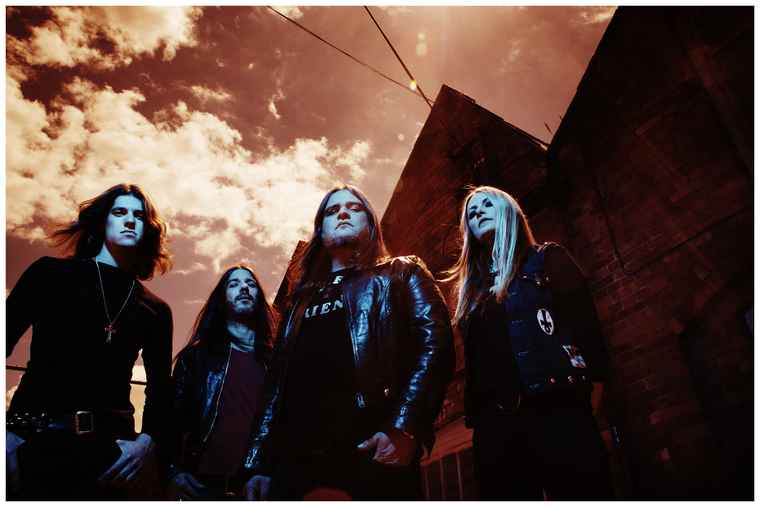 10) As I said earlier, there are a lot of ’70s influences on the album so, are there any bands, music styles or periods that have had a bigger impact than other ones on the album? Apart from the dead, what has inspired «Time to Die»?
10) As I said earlier, there are a lot of ’70s influences on the album so, are there any bands, music styles or periods that have had a bigger impact than other ones on the album? Apart from the dead, what has inspired «Time to Die»?
You know, I still listen to the same music I’ve always listened to, I don’t think much has changed particularly. I listen to a lot of ’70s hard rock, all the music I grew up with, and all the black metal stuff. I listen to pretty much anything, to be honest, as long as it’s good. Nothing specifically inspired us, although like I said, we did get a bit more ‘rootsy’, playing a lot more blues-based stuff like Cream and Blue Cheer, and some people have noticed a bit of a Detroit influence – I think that has always been there, actually, but it might have come more to the forefront through the production this time… bands like The Stooges and the MC5, those were revolutionary sounds, and those influences have come out here…
11) You also seem to be inspired by horror comics, old horror movies, literature and I could even dare I say graphic artists, as your music and your whole world has always had a certain aesthetic. So what are some of the most non-musical influential things and artists/authors for ELECTRIC WIZARD?
Well, a documented big influence on us is Jess Franco, the film director. We are attracted to people who are iconic and have a strong spirit. I mean, you do draw on a lot of influences as an artist, and with us these are not purely musical. For example, there’s also horror comics, that’s the stuff I grew up with, and it kind of just sets the atmosphere and the scene more than anything. Doom is very much about atmosphere, as I said before, so I think you do look for those sort of influences as a starting point for writing music.
12) I read some time ago you were going to self-release the album via your own imprint, Witchfinder Records, but it has finally been released with Spinefarm. What made you change your mind and what made you sign to Spinefarm after leaving Rise Above?
Well, to be honest, we tried to get the best of both worlds… We have been selling T-shirts and merch ourselves for years, but the thought of trying to put out records ourselves started becoming a bit overwhelming. So at some point we entered into discussions with Spinefarm, and we found a way forward that makes sense for both parties… we have still retained the Witchfinder imprint and spirit, and it is still there as a logo, and it’s still maybe something we can develop as a label. We have spoken about it, so hopefully we have got the best of both worlds now, as I say. I think if I was running the label personally it 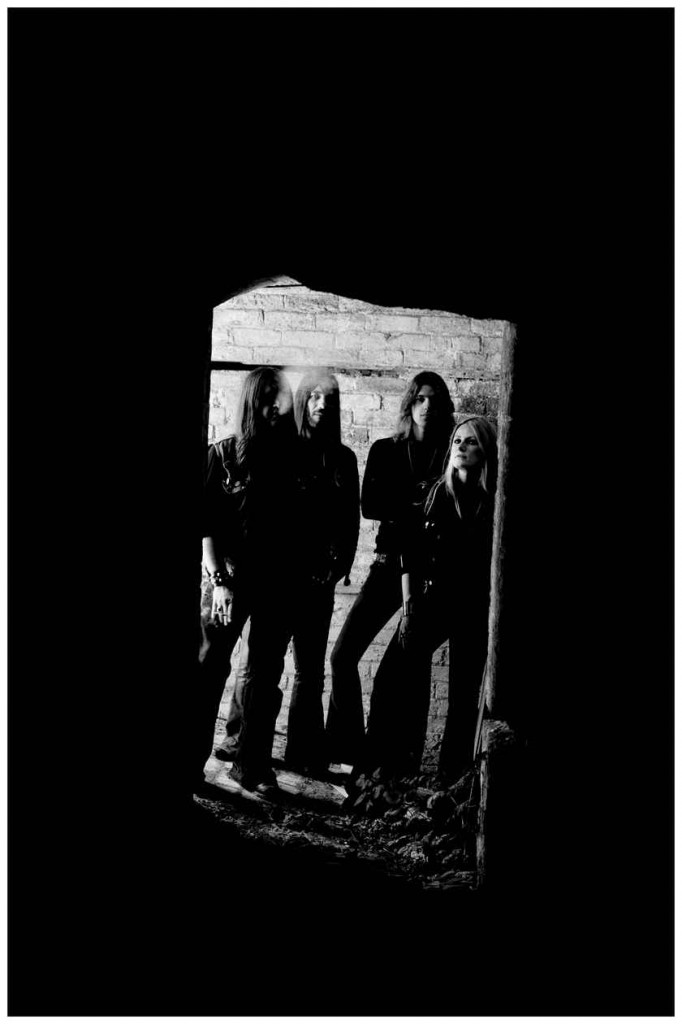 would probably sink into the ground quite quickly, haha…
would probably sink into the ground quite quickly, haha…
13) You also did almost the whole production of the album. How was the whole process like? Did you get the sound you were looking for?
Yea, eventually. We ended up recording it and mixing it and doing loads of stuff in different studios, so naturally someone had to take charge. I actually relied on Chris Fielding to pretty much mix the record because I had worked with him a few times and I trust him and it’s his desk, haha… and too many chefs can fuck it up, really. I think me overseeing the whole thing at least gave it continuity, and I made sure there weren’t any weird elements coming in. Over the last few albums, the producer was pushed to do a few things by outside forces, and those things weren’t necessarily what the band wanted, so this time around we made sure that everything was done our way. That’s probably why the album is a bit longer than usual, we weren’t neutered.
14) All this about «Time to Die» being said; how could you describe it in just 3 words?
Time To Die.
15) And finally, what are your near-future plans?
Probably to get on the road really, as far as the band is concerned. This album is meant to be played live, and we’re actually looking forward to getting out there and doing that.

